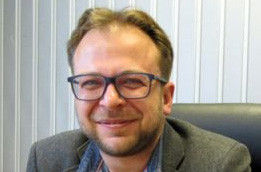According to Eurobarometer data, the involvement of young people in volunteer activities, organizations or elections has gone up in recent years. More than half of young Europeans say education and the acquisition of skills is a top priority. Environmental protection and combatting climate change come second, followed by employment, management of migration flows and integration of refugees. These are all expectations the EU should devote more attention to after the upcoming EP elections are over.
 Analysts say that today’s young people of Europe are the most highly educated ever, and that they use information and communication technologies creatively. There are many youth EU programmes and that is a main focus in youth policy, said Teodor Stoychev head of the European Parliament information office in Bulgaria for the BNR.
Analysts say that today’s young people of Europe are the most highly educated ever, and that they use information and communication technologies creatively. There are many youth EU programmes and that is a main focus in youth policy, said Teodor Stoychev head of the European Parliament information office in Bulgaria for the BNR.
“The most popular programme is Erasmus, millions of people have already availed themselves of it. It is open to countries outside the EU as well, the idea being for more young people to see how the subject they are interested in is taught. To be speaking the language, to see a different culture, and to meet people from different countries of the EU. That is why we talk of a generation ERASMUS.”
And as the debate on the future of the EU is at its height, we asked students from the St. Kliment Ohridski University, Sofia what kind of Europe they want to live in. Simeon Tenev, a first-year law student says that he has travelled to many countries of Western Europe but will soon be applying for an educational exchange programme to gain more experience in law:
“The European Union can be even closer to people. Double standards are a problem that divides countries. To my mind the European Union is a virtue that will be difficult to preserve in Europe without union agreements. I, personally, am against constantly comparing Bulgaria with Romania. We may be neighbours but the two countries have different domestic and foreign n policies, that it why applying similar criteria when we were joining the EU in 2007 to both countries was not the right thing to do.”
Ivan-Asen Ivanov, a second-year student of political science, says that the EU is not an end product, but a system that is evolving, and that it is up to us to decide which way it should go – towards more integration, or in the opposite direction:
“Ever since I was at school I have been following all developments in Europe and the way the community is about to change, radically altering our way of life. The world we are now living in requires people to come together, it requires a better understanding of the problems humanity faces. I think that, in a globalized world, without a project like the EU that will deepen all the time the international problems are not going to find a solution any time soon. And I am talking about climate change – a problem which will soon start having a direct effect on the lives of us all, as well as international security. We are seeing threats from terrorist groups, hybrid attacks coming from different sides – these are things that are having a powerful effect, and a country like Bulgaria will be better protected as part of the EU.”
The EU is not a country, and our MEPs are first and foremost Bulgarian, that is why our national interest should come first, Teodora Simova who is doing “law” says:
“I do not think that the individual has a voice that is heard in the EU. There must be a targeted discussion at the Bulgarian National Assembly of every decision that is voted by our MEPs. I do not think that civic protests are bearing results, in most cases they are belated and so nothing changes. I also think that in Europe, small countries should be given more attention. My own feeling is that our interests are not being protected to such an extent as the interests of the bigger countries in Western Europe. I do not know yet who I am going to vote for at the elections, but I shall do my own research because I want to choose someone who will uphold the interest of the citizens.”
Modernizing critical thinking skills, fact-checking skills and media literacy are essential for society, especially for young people in Bulgaria - the country with one of the lowest media literacy indices in the EU, reports the educational platform..
The residents of Pleven (Central North Bulgaria) will bid farewell to 2024 with a Christmas Town and meetings with Santa Claus. This year's festive program of the local municipality will start on December 2 with the Christmas tree lighting ceremony at..
An innovation for the treatment of diabetic foot ulcer using the patient's own tissue and artificial intelligence has been implemented at the University Multi-profile Hospital for Active Treatment-Burgas. Bulgaria is the fourth European country to start..
Bulgarians' assessments of the past year in personal terms differ sharply from their views on the situation in the country and the world , according to a..
Bulgarian scientists in Antarctica traditionally celebrate the New Year several times, depending on the presence of foreigners in the base, the head of..
Sofia City Hall is planning a light show instead of fireworks for the New Year's celebrations, it's press office announced. The show, which will be..

+359 2 9336 661
